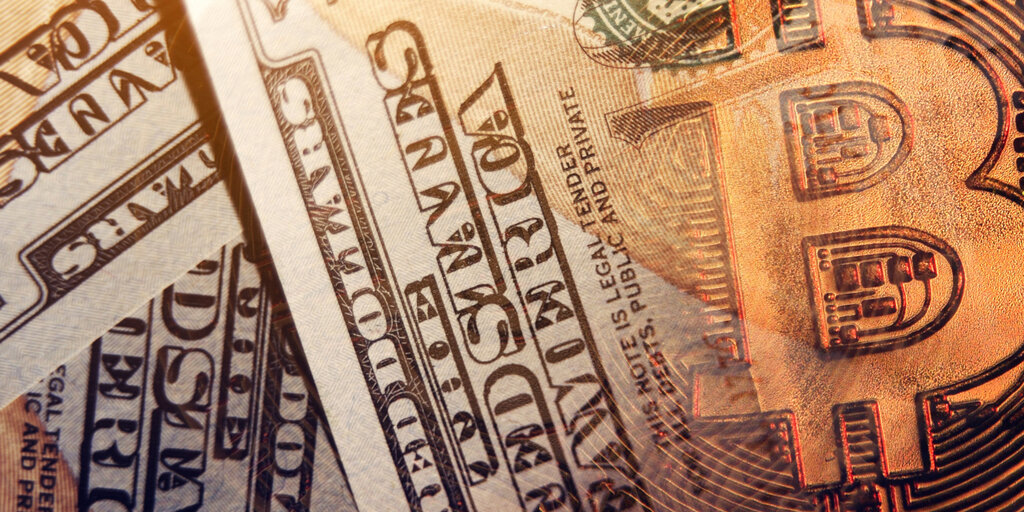Bitcoin has become a hot topic ahead of the U.S. election following Donald Trump’s recent endorsement of the cryptocurrency. And part of the Republican Party’s crypto embrace hinges on central bank digital currencies (CBDCs)—the dangers to financial privacy they may pose and how to stop them.
But what if Bitcoin presented the real privacy threat?
Its most privacy-focused proponents believe that it does, and that the U.S. government’s embrace of the cryptocurrency—through Trump’s proposed strategic reserve or other measures—would only make matters worse.
“Bitcoin would be worse than normal CBDCs from a privacy point of view, because at least with CBDCs, your neighbors can’t surveil your financial activity—only the government,” Rafe, a pseudonymous contributor to privacy-focused Bitcoin wallet Wasabi, told Decrypt.
Privacy advocates in the space have been saying for some time now that the lack of privacy on the Bitcoin network—and the fact most crypto users aren’t seemingly bothered—is a growing concern.
They worry that governments could use the open, transparent, and easily traceable Bitcoin blockchain to monitor citizens’ spending and other activity on the network. And for good reason. In many ways, law enforcement agencies around the world are already doing exactly that. In other words, the potential threat to financial privacy posed by CBDCs, either real or imagined, already exists on Bitcoin—and by design. But are those concerns overblown?
The CBDC issue
Central bank digital currencies, or CBDCs, are—as the name suggests—centralized digital assets. Unlike virtual coins like Bitcoin or Ethereum, CBDCs are operated by a centralized entity—usually a government. Both the crypto community and some U.S. lawmakers have warned that such a technology is a threat to liberty.
Trump ahead of the election has especially ramped up the rhetoric. In January, he called CBDCs a “dangerous threat to freedom” and said he would “never allow the creation” of one. He has touted Bitcoin as a remedy—and wants the asset to be exclusively mined on American soil.
He’s not the only one that wants Bitcoin to be a big part of the U.S. economy. “Bitcoin senator” Cynthia Lummis (R-WY) introduced a bill just two weeks ago that aims to build a government Bitcoin reserve, mirroring Trump’s proposal.
Crypto users and like-minded politicians don’t like the idea of a government-issued CBDC because it could allow for broad oversight of the public’s financial activities—and potentially restrict spending. China, the most advanced country in terms of CBDC testing and development, already closely monitors its citizens’ spending.
If Bitcoin becomes a payment system used by a majority of citizens, could governments use it like a CBDC?
But Bitcoin’s private, right?
Bitcoin by design is transparent: every transaction is recorded on a distributed ledger for people to see. This has long been a talking point for Bitcoiners: if two Bitcoiners send and receive money in a transaction, it isn’t difficult to see what other funds they have sitting in their personal wallets, where they’ve been or where they go next.
Law enforcement officials have even said they love it when criminals use Bitcoin because it’s so easily traceable.
“Governments have gotten very good at monitoring that ledger and tracking transactions through the ledger, and if they do to the extent that they’re able to connect your physical or real world identity to your digital address, they’re able to see what transactions you’re making,” associate professor of economics at Florida Atlantic University William J. Luther told Decrypt.
Luther added, however, that Bitcoin can offer a high degree of financial privacy, but users must take additional steps to operationalize it via privacy-enabling tools. Such tools are commonly referred to as “mixers,” which help anonymize transactions that would otherwise be traceable.
High-profile figures such as NSA whistleblower Edward Snowden have pushed for privacy-focused Bitcoin solutions—only for U.S. authorities to crack down hard on tools which aim to anonymize crypto transactions.
In May, U.S. authorities arrested the founders of Bitcoin mixer Samourai Wallet, accusing them of conspiracy to commit money laundering. The app allowed users to obfuscate their transactions by mixing them with others.
Craig Raw, developer of the Bitcoin Sparrow Wallet, told Decrypt that although techniques work to privatize Bitcoin, “the current U.S. administration seeks to suppress or remove access to them entirely.”
Too much cause for concern?
But despite the warnings, worries that Bitcoin could be used like a CBDC don’t sway other privacy advocates.
Blockchain consultant at Willenrimer and former member of the MAGIC Monero Fund committee Csilla Brimer said that although Bitcoin “is an excellent surveillance tool and governments will use it to trace criminals, it’s unlikely to be used as a CBDC.”
She added that disagreements over whether Bitcoin works as cash or digital gold would make it hard for authorities to regulate and therefore difficult to ever be used as a currency.
Nicholas Anthony, policy analyst at the Cato Institute’s Center for Monetary and Financial Alternatives and a fellow at the Human Rights Foundation, likewise told Decrypt that a government controlling its citizens through blockchain would be very difficult—and would lead Bitcoiners to go elsewhere.
“If something like that were to occur, I very much imagine that the rest of the space would fork the chain and try to go elsewhere,” he said. “So considering by its very nature—Bitcoin is outside of the direct control of governments—I don’t see how it can be used to that extent,” he said.
Still, those working on privacy solutions for Bitcoiners bemoan that not enough of the community cares about the topic.
Snowden again warned of the dangers of Bitcoin’s lack of privacy at the Bitcoin 2024 conference in late July—claiming that AI could be used to surveillance financial transactions, and Bitcoin’s public ledger is a prime location to train such AI models.
Wasabi developer Rafe warns that if Bitcoin does end up being used by oppressive governments, it may be too late by the time people notice. “Most people don’t care about their freedom, until it is taken away from them,” he said. “If nothing changes, we are looking at a pretty grim future.”
Daily Debrief Newsletter
Start every day with the top news stories right now, plus original features, a podcast, videos and more.
Source: https://decrypt.co/242754/bitcoin-privacy-threat-government-cbdc




